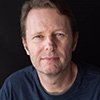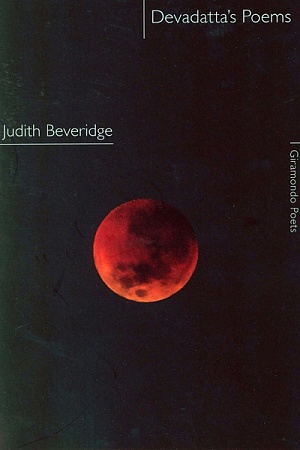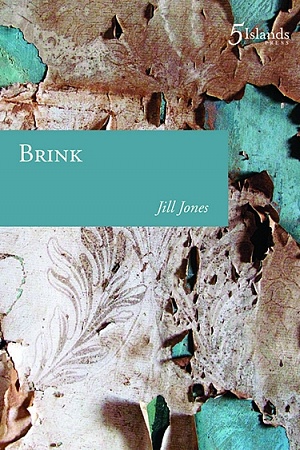Poetry making something happen
In a suburban theatre somewhere in the most isolated capital city in the world, on an early Sunday morning, the Ambassador for Ireland, James Sharkey, was pouring three glasses of muscatel. This action, rather like the lighting of the Olympic flame, opened the 1989 Writers’ Week of the Festival of Perth.
The presence of the Irish ambassador and the muscatel was accounted for by the first theme of the week, which was that of W.B. Yeats and his influence. It is not surprising that a great many Celtic accents could be heard off stage as well as on. Indeed, the previous night saw a private dinner held by the W.B. Yeats Society of W.A. (one of only four Yeats societies in the world) whose only club rule seemed to be that some of Yeats’s poems should be read and suitably appreciated.
The Keynote address of Writers’ Week was given by Yeats’s American editor, Richard Finneran, who talked, delightfully and entertainingly, on the problematic nature of editing.
Australian academic Peter Kuch gave a paper on Yeats and Ireland, entitled ‘For Poetry Makes Nothing Happen’, borrowing Auden’s famous line. Kuch, making little concession for the non-academics in the audience, came to the conclusion that poetry did make something happen because of the political and personal implications of the constructed nature of language, although he seemed to completely ignore what was the most obvious effect poetry was having that morning. Poetry was making things happen: it was making governments and councils spend money for a lot of people to stand behind a lectern and discourse on the nature of poetry and an Irish poet. It was making a lot of other people spend money to hear these people, as well as to sit through innumerable tea breaks. (The scene was so Celtic it cried out for defamiliarisation in the antipodean framework.) Poetry made writers’ week happen.
For me, and I think for many others, the highlight of the week was the reading of the Irish poet, playwright, novelist, anthologist, and academic Brendan Kennelly. Kennelly had organisers worried when his plane was delayed in Bangkok. After having spent the night under gate forty-two, Brendan looked remarkably fresh, his well-rounded figure, his receding hairline, his good natured but slightly naughty smile giving one the impression of a benevolent uncle. Brendan Kennelly has the knack of making potentially platitudinous things sound like words of wisdom, cliches like well-turned phrases. He made the Anglo-Saxons among us feel guilt without resenting him for it. As Kennelly said himself, poetry should be a ‘bringing together’. Brendan Kennelly’s reading showed a gift that few poets can give to their work, which is to bring life to their poetry. Kennelly must have affected others too: chairman for that session, Dennis Haskell, in thanking Kennelly could come up with little more than ‘bloody marvellous.’ Kennelly also gave a paper on Yeats and his influence on later poets, showing a similarly entertaining and highly personal, though not self-indulgent, ability to bridge the gap between the academy and the world.
Other academics to give papers were John Harwood, world expert on Olivia Shakespear, Patrick Furey, and Peter Alexander. Ron Blair read a wonderfully witty short story which fictionalised the meeting of Yeats and Australian playwright Louis Esson. One of the sad absences was Vincent Buckley, in whose place was friend and New Zealander Vincent O’Sullivan, who gave a memorial paper on Buckley. O’Sullivan also gave, along with Western Australian poet, critic, and recently retired academic Fay Zwicky, a reading of original poems.
On Monday, the participants in a Poets’ lunch sheltered from the heat under the gum trees outside the Subiaco theatre centre, at which a reading of Louis Esson’s Vagabond Camp was given, led by John McCallum.
Having been immersed in Yeats and all things Irish, we were suddenly plunged into the second theme of the week, ‘Fact, Fiction and Fantasy’, subtitled ‘We Are All Writers’, and devoted to the relationship of ‘factual’ and ‘fictional’ writing and the reputation of writers of non-fiction.
We were thrown in at the deep end with Dennis Altman’s ‘The Politics of Poetry’, in which, as seems common today with the most theoretically advanced, poetry was redefined so radically that it may mean anything, and this becomes its political force. Altman’s paper was a good example of the rhetorical power and limitations of political assertions.
Brian Matthew, author of prize winning biography of Louisa Lawson, Louisa, de-authorised his own text by admitting to its constructed nature. Nell Dunn, well-known author of Poor Cow, Up the Junction, and Steaming gave a disappointing paper on writing as the purging of the forbidden, while reading huge tracts of Chekov for almost no apparent reason. Margaret Barbalet gave what must have been a rather hurriedly prepared paper in the absence of Drusilla Modjeska.
Perhaps more generally appealing were the many and excellent readings given over the second half of the week. Of great interest was the appearance of Brian Patten, who for twenty-five years has been labelled a ‘Liverpool poet’. Patten’s keynote was accessibility, and his paper ‘Comedy in Poetry’ was simply a reading of his own humorous verse for children and adults. Patten had great stage presence; he would move the lectern away from himself, and begin as confidently as a stand-up comedian. ‘I’m not a very good speaker in terms of talks’, he said and proceeded to give a lively reading.
There were also some forward-looking moments. Australian author, Rod Jones read a story from a forthcoming collection of short stories all written in response to the Jeffrey Smart painting The Expressway.
Margaret Barbalet read from her forthcoming novel and Marion Campbell, author of Not Being Miriam, performed her paper with the help of Jacki Reed. What could have easily been metafictional rubbish turned out to be a hilarious romp through the ‘Strange Suburbia’ that surrounded us, and which we had been inhabiting metaphorically in the discussion of the fictional and non-fictional.
The week ended with a discussion promisingly entitled ‘Don’t Label Me, I’m a Writer’ with Nell Dunn, Margaret Barbalet, Brian Matthews, Brian Patten, Rod Jones, and Dennis Altman. Unfortunately the chairperson had disappeared and the discussion lacked focus and became (fittingly perhaps) disparate voices extolling disparate views.
Other events were held during Writers’ Week in Perth. These were a Bush Ceilidh or ‘informal Gaelic gathering’; a Yeats exhibition at the local library; an exhibition on censorship by International PEN; a performance of Irish theatre (including Lady Gregory’s The Rising of the Moon); the launching of the Fremantle Arts Centre Press’s Wordhord, a critical anthology of contemporary Western Australian poets, followed by a writers’ cabaret, which included poetry readings and music. Writers’ Week was funded by the Government of Western Australia through the Department of the Arts, the Australia Council, and the British Council.











Leave a comment
If you are an ABR subscriber, you will need to sign in to post a comment.
If you have forgotten your sign in details, or if you receive an error message when trying to submit your comment, please email your comment (and the name of the article to which it relates) to ABR Comments. We will review your comment and, subject to approval, we will post it under your name.
Please note that all comments must be approved by ABR and comply with our Terms & Conditions.